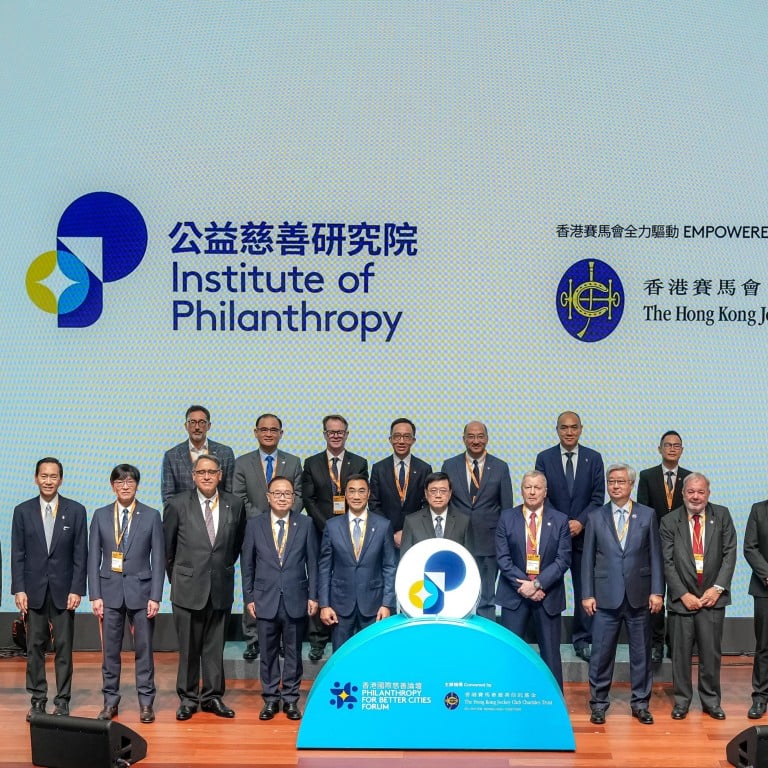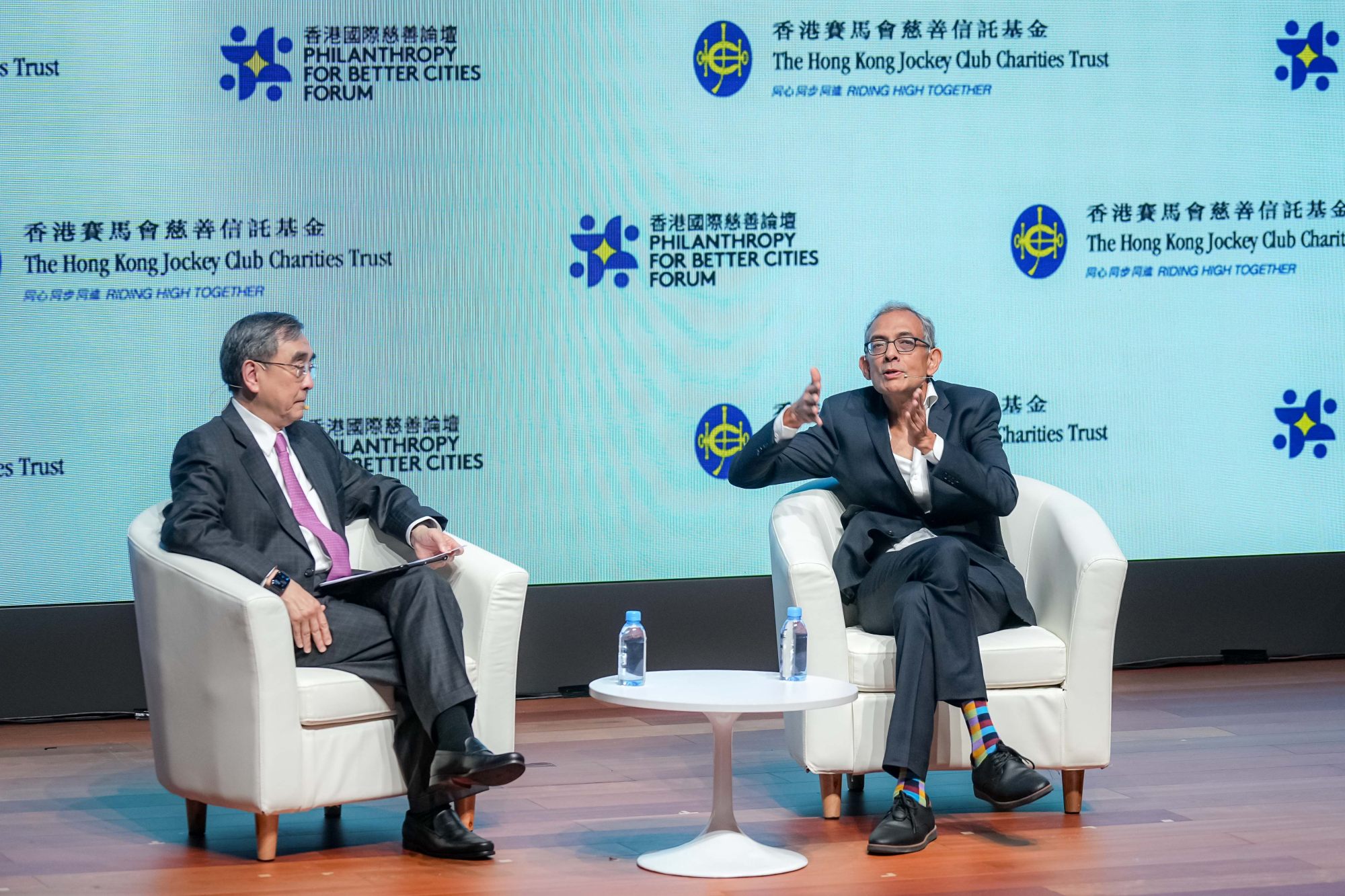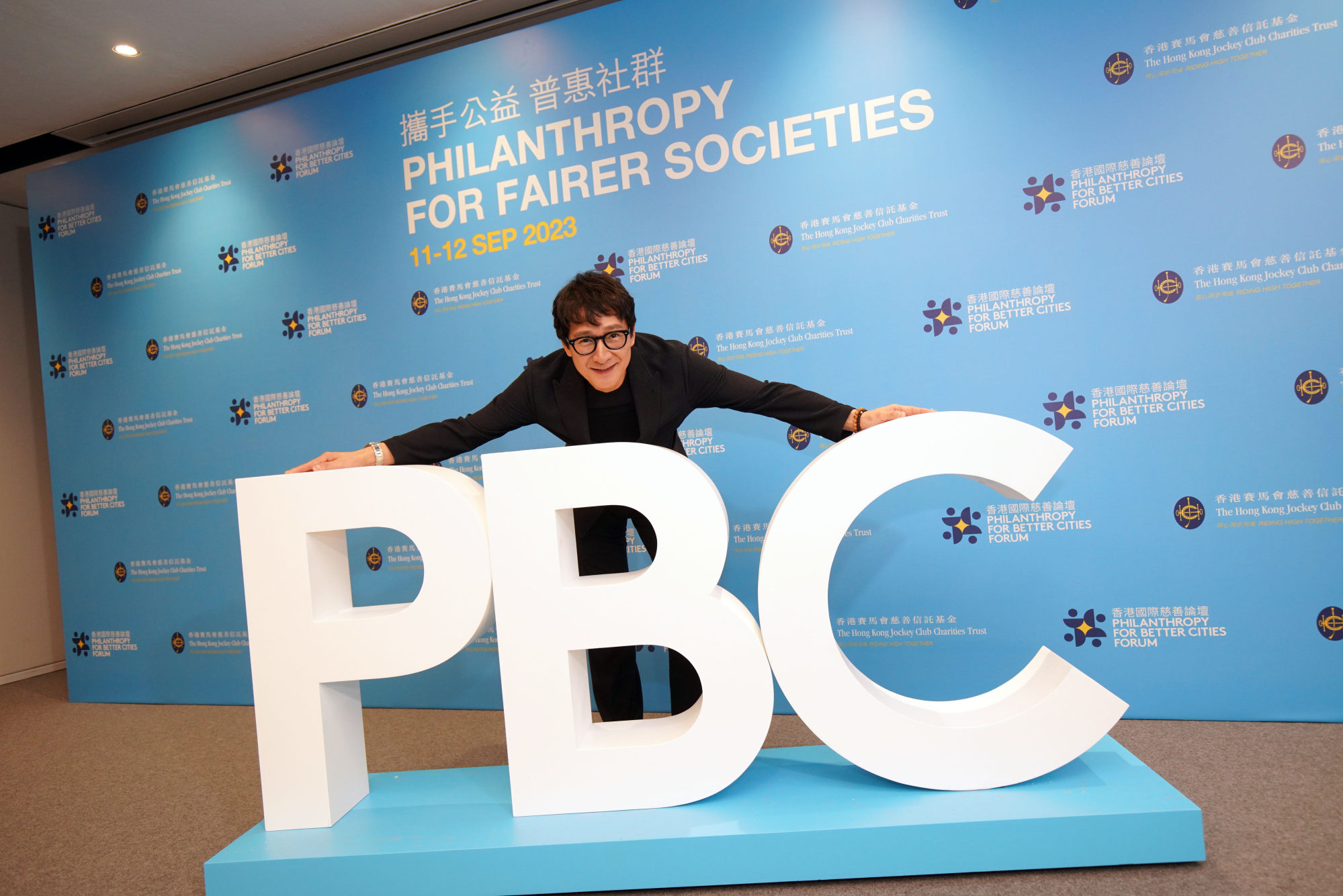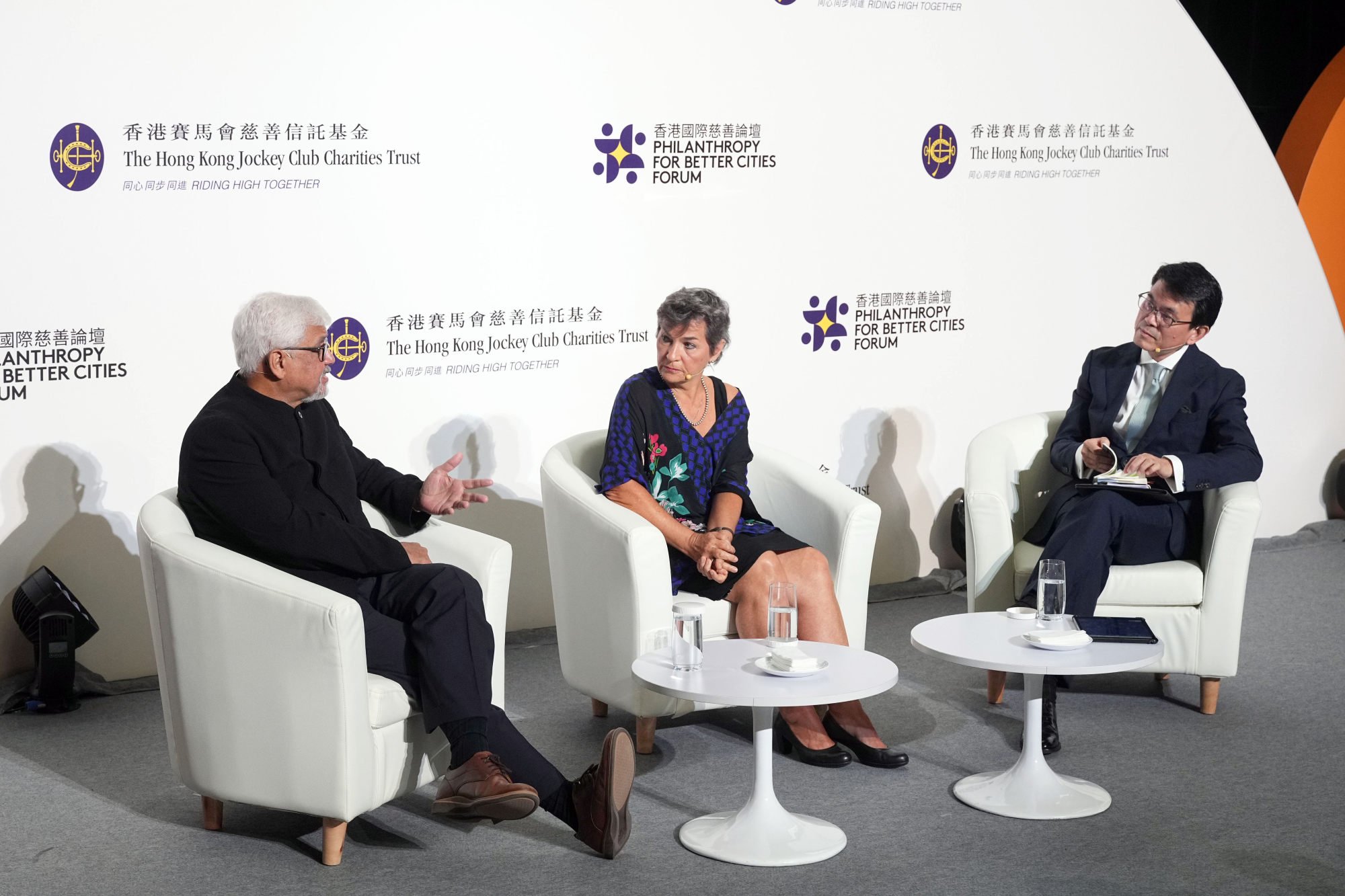
Hong Kong Jockey Club’s philanthropy forum brings together global thought leaders to discuss solutions for fairer societies
- Close to 70 eminent speakers and 1,600 delegates from around the world attend third Philanthropy for Better Cities Forum, with theme of ‘Philanthropy for Fairer Societies’, at Hong Kong’s West Kowloon Cultural District
- September’s two-day event also sees launch of the Club’s Institute of Philanthropy to promote local, regional and global philanthropic thought leadership, backed by HK$5 billion in initial funding from Club
[Sponsored article]
After a five-year hiatus, the Philanthropy for Better Cities Forum, convened by The Hong Kong Jockey Club (the Club), returned for its third edition on September 11 and 12 under the theme Philanthropy for Fairer Societies.
At the two-day event in the West Kowloon Cultural District, officiated by Hong Kong Chief Executive John Lee and Club chairman Michael Lee, close to 70 speakers from around the world came together to share their insights with 1,600 thought leaders and delegates, including over 180 representatives from regional and global foundations.

During the opening ceremony of the Philanthropy for Better Cities Forum, Chief Executive of the Hong Kong Special Administrative Region John Lee said: “Hong Kong is determined to play an increasingly important role in advancing philanthropy and the social impact it can make.
“We want to create a fairer society for everyone. It helps that we have The Hong Kong Jockey Club Charities Trust to turn to for organising the Philanthropy for Better Cities Forum and a great deal more.”
He added: “The establishment, today, of the Institute of Philanthropy will, I am confident, go a long way towards realising the Hong Kong SAR Government’s goal of building Hong Kong into a leading international centre for philanthropy.”
In his opening remarks, Michael Lee reiterated the Club’s commitment to supporting community and charity initiatives.

Through a “unique integrated business model”, where racing and wagering generate employment, tax and charity support for the community, the Club has become one of the world’s top-10 charitable donors and a leading contributor to the betterment of society. It returned HK$35.9 billion in tax contributions and charity donations in the financial year 2022-23.
Lee also announced the establishment of the Institute of Philanthropy (IoP), a “think-fund-do” tank to promote local, regional and global philanthropic thought leadership, backed by HK$5 billion in initial funding from the Club.
“We aim to establish the IoP as a dependable source of philanthropic knowledge and to leverage its resources to strengthen the professionalism of funders in the Hong Kong SAR, nationwide, throughout Asia and beyond, by providing sector-wide infrastructure and standards development,” he said.
“This, in turn, will support and complement the HKSAR Government’s policy priorities, as well as contribute to national development.”

Echoing the chairman’s remarks, the Club’s CEO Winfried Engelbrecht-Bresges said: “If we are to truly leverage the power of philanthropy, we need to build platforms and communities which are permanently connected.”
He added: “The IoP will be a place to bring the best ideas and minds together. It will synthesise, commission and publish groundbreaking research. But it will also be hands-on, helping to build the capacity of professionals in the philanthropic and non-profit sectors.”
A range of pressing global issues were discussed during the forum, including growing wealth disparity. “Inequality has been going up. And it’s not just going up – it’s going up to historically unknown levels,” Abhijit Banerjee, 2019 Nobel laureate in economics and Ford Foundation International professor of economics at the Massachusetts Institute of Technology in the US, said in his keynote speech.
Banerjee put forward a range of possible solutions to lifting people out of poverty, including regular direct asset transfers. Accompanied by training, such programmes can successfully increase net worth, income and consumption.
Other solutions he suggested were the direct provision of public services where they are lacking (such as environmental services) and driving for better governance by giving people a greater understanding of their rights.
However, such solutions cannot be a silver bullet. Solutions are only ever right for a particular situation and cannot be regarded as a panacea, Banerjee said. Ultimately, there is no solution to poverty, only a way to help a given group in a specific situation.
He also stressed that it was important not only to find the proper solution but also to ensure that whatever solutions are chosen are backed by strong data and proven to be effective.

Banerjee said that the Institute of Philanthropy signifies a move in the right direction, one in which philanthropy is taken seriously.
“I hope the institute serves as an intellectual boulevard for that because you need the science to be right. As I said during my talk, few things work very well and many things don’t work.”
Another speaker was Vietnamese-born actor Ke Huy Quan, who this year became only the second Asian-American to win an Oscar for best supporting actor. He explained how the arts, including film, can play a role in bridging inequality.
As a child growing up in Los Angeles’ Chinatown, he watched videos of fundraising concerts in Hong Kong.
“I would watch stars like Roman Tam, Chow Yun-fat or Leslie Cheung performing for the cause,” he said. “And ever since I was a kid, I know how important philanthropy is and how important it is to be kind.
“Hong Kong is such a small city, but the amount of philanthropy you do is absolutely incredible.”

Quan arrived in Hong Kong with his father and five siblings as refugees in 1978, after sharing a boat with 27 others. He and his family lived in a refugee camp in the city before migrating to the US.
“The Hong Kong government was really generous to us,” he said. “You opened your arms to us. If you had sent me back, I would have not walked off the plane [in Hong Kong] 45 years later as an Academy-Award-winning actor.”
Quan said that he hopes to use his celebrity to champion philanthropy. Because of his own experience, helping displaced people remains one of the causes closest to his heart.
Climate change was also high on the forum’s agenda, and few people are more qualified to address the topic than another of the keynote speakers, Christiana Figueres, former United Nations climate chief who is a co-host of the “Outrage + Optimism” podcast.
Figueres was instrumental in bringing about the historic Paris Agreement on Climate Change in 2015, when 195 sovereign governments agreed to work towards maintaining the global temperature rise this century at well below 2 degrees Celsius above pre-industrial levels.

Describing climate change as the “mother of all injustices”, she pointed out that tackling it is in everyone’s enlightened self-interest.
She said investment in renewable energy sources such as wind and solar – which are becoming increasingly cost-efficient – is vital for tackling climate change.
“All of those technologies are now completely competitive against the technologies of the incumbent fuels … fossil fuels,” she said. “In fact, solar is the cheapest form of electricity worldwide.
“Only 2 per cent of the world’s philanthropy is going into climate change, but philanthropy can be deployed fast, and it can accelerate the phase of the energy transition.
“It can work across boundaries, across sectors and it can begin to buy down [reduce] the risk and speed innovation. There’s a huge role to be played by philanthropy because timing is really of the essence.”

